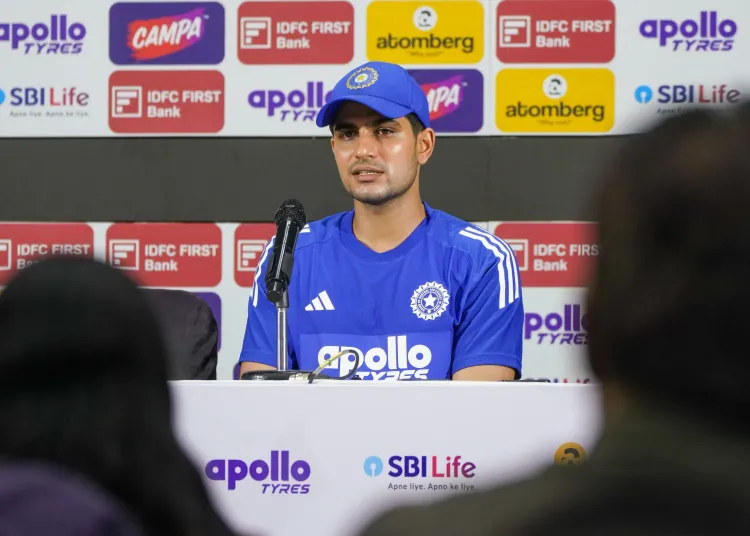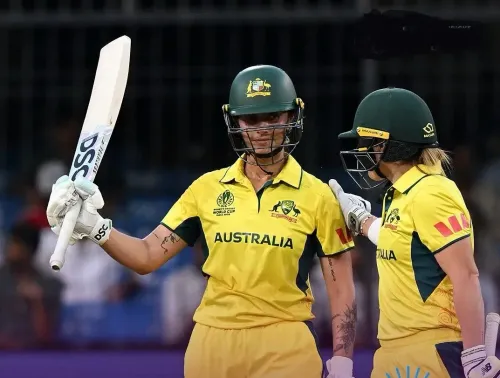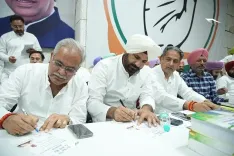Is Switching Formats More Mental Than Technical, According to Shubman Gill Ahead of the 1st Test vs WI?

Synopsis
Key Takeaways
- Switching formats is mainly a mental challenge.
- Focus on hard, grinding cricket for Test matches.
- Possibility of a third seamer based on pitch conditions.
- Resilience and adaptability are key.
- Effective handling of spin and reverse swing is crucial.
Ahmedabad, Oct 1 (NationPress) India's Test captain Shubman Gill, fresh off his performance in the Asia Cup, is gearing up to lead the squad in a two-match Test series against the West Indies starting Thursday. He emphasized that transitioning between formats is more of a mental challenge than a technical one.
During a press conference on Wednesday ahead of the first Test in Ahmedabad, Gill shared insights about his preparation given the swift shift from white-ball to red-ball cricket.
"We had a couple of practice days leading up to the Test, making it a quick transition. I focused on enhancing my defense and getting into the right mindset; shifting formats is largely a mental adjustment rather than purely technical," he remarked.
"Our aim is to play resilient, hard-fought cricket. In recent years, many Test matches haven't lasted the full five days. We're determined to engage in quality, challenging cricket. The Tests we played in England were quite intense and prolonged. Expect us to showcase determined, tough cricket without seeking shortcuts," Gill stated.
He continued, "We possess the skills to excel in various circumstances, and with the talent within our team, we can recover from any situation, which is our goal for the upcoming matches."
When asked about the team composition for the opening Test at the Narendra Modi Stadium, Gill mentioned the possibility of including a third seamer in the lineup. However, the final decision will be made on the match day, depending on the wicket's moisture levels.
"Considering the weather and pitch conditions, we’re leaning toward a third seaming option. However, we still have time before the Test, and we'll assess the field tomorrow to gauge the moisture content before making a decision," he explained.
"We aim to play on pitches that provide a challenge to both batsmen and bowlers. However, any team visiting India must contend with spin and reverse swing. If teams can effectively handle spin and tackle reverse swing, they stand a good chance of success. Keeping these challenges in mind, our target is to play on pitches that offer something for both batsmen and bowlers," he added.
vi/bsk/









